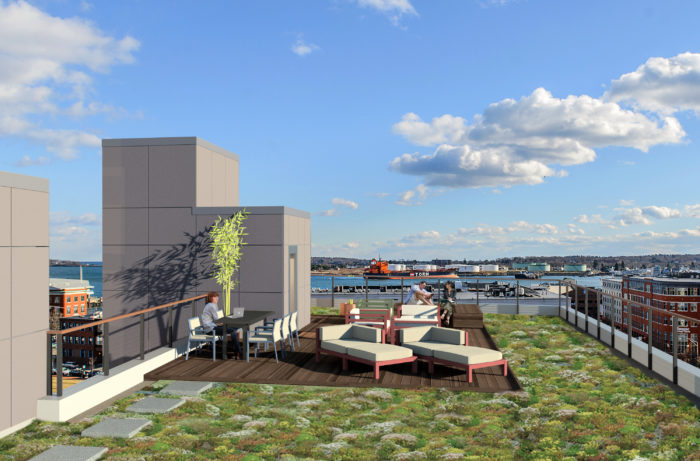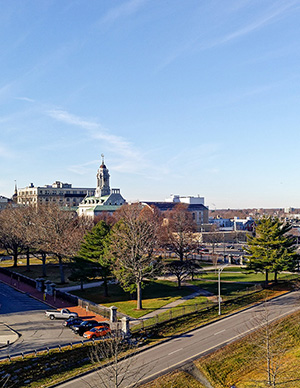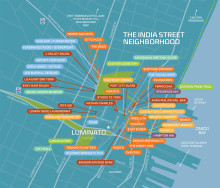A “green roof” is an extension of the existing roof system, and incorporates a high quality water-proofing and root repellant system, a drainage system, filter cloth, a lightweight growing medium, and plants. A green roof offers a number of public and private benefits.
Public benefits include:
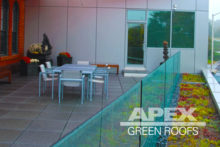 Aesthetic Improvement
Aesthetic Improvement
Urban greening is an easy and effective strategy for beautifying the built environment.- Storm water Management
Green roofs store water in the substrate, from which the plants take it up and return it to the atmosphere through transpiration and evaporation. Green roofs not only retain rainwater, but also moderate the temperature of the water and act as natural filters for any of the water that happens to run off. Green roofs reduce the amount of storm water runoff and also delay the time at which runoff occurs, resulting in decreased stress on sewer systems at peak flow periods. - Waste Diversion
Green roofs help divert waste from landfills by prolonging the life of waterproofing membranes, using recycled materials in the growing medium, and prolonging the service life of heating, ventilation, and air conditioning systems through decreased use. - Moderation of Urban Heat Island Effect
Through the daily dew and evaporation cycle, plants help cool cities during hot summer months and reduce the Urban Heat Island (UHI) effect. The temperature moderating effects of green roofs can reduce demand on power plants, and potentially decrease the amount of CO2 and other polluting by-products being released into the air. - Improved Air Quality
Green roofs help reduce the distribution of dust and particulate matter throughout the city, and can play a role in reducing greenhouse gas emissions. The plants on green roofs can capture airborne pollutants and atmospheric deposition, they can also filter noxious gases.
Private benefits include:
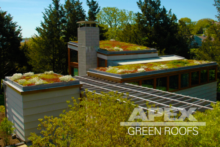 Energy Efficiency
Energy Efficiency
Green roofs offer greater insulation and reduce the amount of energy needed to moderate building temperature, because roofs are the source of the greatest heat loss in the winter and the hottest temperatures in the summer.- Increased Roofing Membrane Durability
Green roofs decrease the exposure of waterproofing membranes to large temperature fluctuations that can cause micro-tearing, and ultraviolet radiation. - Fire Retardation
Green roofs have a much lower burning heat load (the heat generated when a substance burns) than do conventional roofs. - Noise Reduction
Green roofs have excellent noise attenuation, especially for low frequency sounds. An extensive green roof can reduce sound from outside by 40 decibels, while an intensive one can reduce sound by 46-50 decibels.
An artist’s rendering of the Luminato Rooftop Terrace shows the green roof planned for it.

